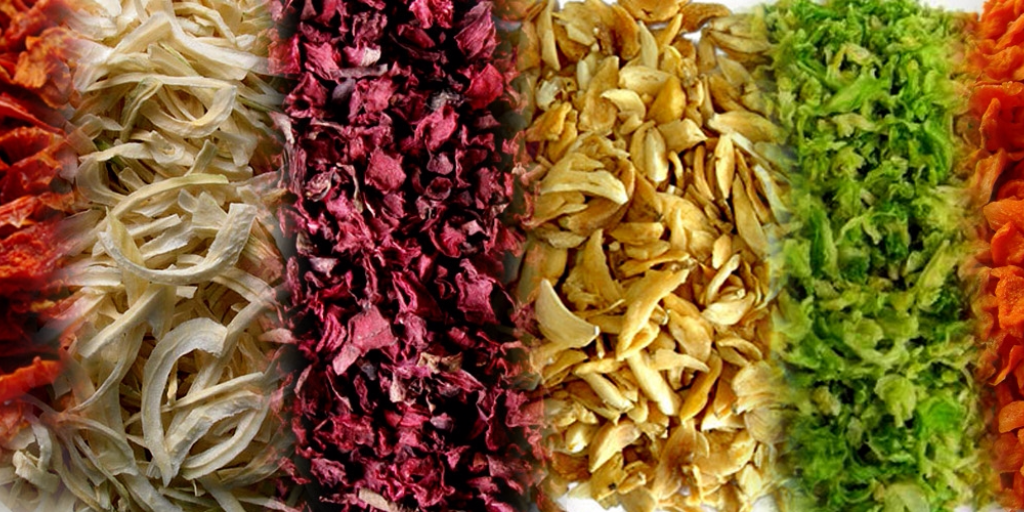Offer
Provide additional details about the offer you're running.

It’s a question many people ask… ‘Why do you choose to dehydrate?’
There is a lot to say about enjoying fresh food. It’s good for you, it tastes good, makes you feel good, but there’s also a lot to be said about worldwide food wastage. Food wastage by the USA and Europe alone can feed the world 3 times over! [1] This is just ridiculous! It is devastating to think that there are starving nations out there, yet so many of us throw ‘just spoiled’ food out as if it were rubbish?! By no means am I saying that by dehydrating food we are saving the world, but if enough people do it, it can certainly make a difference. Rather than throw it out, why don’t we try to get to it earlier, dehydrate it and make it last longer?
There are multiple benefits to dehydrating food that make it a very appealing option and while reducing wastage is high on the agenda for many, other benefits of dehydrating food may well be more relevant to others. These include;
The most effective, consistent and efficient way to dehydrate food at home is with a food dehydrator. A food dehydrator allows you to regulate temperatures easily and you have guaranteed even airflow across all trays. There is a huge range of them to choose from and their price tags can start around the $50 mark and climb all the way up to over $500. Foods can, of course, be dehydrated using ovens, the sun and even toasters, but these methods are time consuming and do not offer consistent results.
Fruits, vegetables, meats, cheeses, seeds, yoghurt and herbs are some examples of foods suitable for dehydration [2]. The process details will vary from machine to machine, but generally, how a dehydrator works is by exposing food to low heat for a long period of time. This prolonged exposure removes moisture. The removal of this moisture ensures that bacteria, moulds and yeasts are unable to breed allowing the food to last for much longer than it would if it were to remain fresh.
Broth of Life’s dehydrated bone broth is Australia's first 100% NASAA Certified Organic, paleo friendly, gluten free dehydrated bone broth. It is made from superior, organic grass fed cattle, organic free range chickens, organic biodynamic lambs and organic vegetables. We have done all of the hard work sourcing the very best produce for you, we’ve taken out the guess work, so all you need to do is enjoy it!
Our broth carries all the same benefits as other dehydrated foods along with the fantastic benefits that come along with bone broth in general.
Chicken broth is known for its healing abilities on the upper respiratory tract. It can fight infections, improve digestion and act as an anti-inflammatory.
Beef broth is also known for its healing qualities, can be used to treat a leaky gut and to relieve joint pain.
Lamb broth is made from a slightly less fatty meat that is packed full of gelatines, vitamins and minerals known for healing leaky gut and easing joint pain.
All of our bone broths are organic, paleo, nutrient dense, GAPS friendly, loaded with gelatines, vitamins and minerals – and they all taste great too!
Not forgetting our vegetarian and vegan friends, we also create a dehydrated vegetable stock, that has nothing but pure vegetables, herbs and salt.
The dehydration process itself takes Broth of Life 24 hours. The broth is dehydrated at a low temperature to ensure that no nutrients are lost through overheating. To be sure that the dehydrated version of the broth maintains its high level of minerals and nutrients, Broth of Life have had product tests run through Symbio Laboratories. The results showed that the dehydration process did not affect the product’s nutritional value.
So, if you were considering making dehydrating part of your kitchen routine (or were considering making Broth of Life a pantry staple, for that matter) but needed a little more info, we hope we’ve helped shed some light. We might not be saving the world but if helping the health of our friends, family and customers, reducing food wastage and enjoying a delicious, warm brothee each and every day is the substitute on offer, then we’re all for it!
[1] http://www.theworldcounts.com/counters/world_food_consumption_statistics/world_food_waste_statistics
[2] http://www.excaliburdehydratorsaustralia.com/why-dehydrate/